You hit 50 thinking the weirdest body stuff was behind you—puberty’s awkward phase, random chin pimples in your 30s, that weird thing your knee did in your 40s. But nope. Turns out your body has plans, and they didn’t run them by you. One day you’re confidently walking into a room, the next you’re wondering why your toenails are turning into medieval weapons or why your bladder thinks 3 a.m. is party time.
Aging isn’t just gray hair and reading glasses—it’s a whole series of surprise biological updates no one warned you about. Some are low-key annoying, others are straight-up bizarre. But all of them are proof that your body is still very much a work in progress. So if you’ve ever looked in the mirror and thought, “Wait, this is new,” you’re not alone. Let’s get into the delightfully weird ways your body keeps remixing itself after 50.
1. Your Skin Starts Itching for No Reason

Ever find yourself scratching at your skin, wondering if you’ve developed a sudden allergy to life? Welcome to the world of senile pruritus. As we age, our skin’s barrier function diminishes, leading to dryness and, consequently, that incessant itch. But it’s not just about dry skin; changes in nerve function and immune response also play a role.
This itchiness isn’t just annoying—it can disrupt sleep and affect your quality of life. Moisturizing regularly, using gentle skin care products, and staying hydrated can help. If the itch persists, it’s worth discussing with your doctor to rule out other underlying conditions. In fact, persistent itching after 50 can also signal underlying issues like kidney or liver disease, so don’t just chalk it up to “getting old.” According to the NIH, over 50% of adults over 65 deal with some form of chronic itching, often misunderstood or misdiagnosed. A humidifier, oatmeal-based products, and fragrance-free soaps can become your skin’s new best friends.
2. Your Immune System Gets a Bit Lazy

Remember when your body could fight off a cold in a day? Those were the days. After 50, your immune system starts to slow down, a process known as immunosenescence. This means you’re more susceptible to infections, and vaccines might not be as effective as they once were.
But it’s not all doom and gloom. Staying active, eating a balanced diet, and getting adequate sleep can help bolster your immune response. Also, staying up-to-date with vaccinations becomes even more crucial to protect against illnesses like the flu and pneumonia. Your thymus, the organ responsible for producing T cells, also shrinks significantly by this age—slowing the production of the very cells that help fight infection. As Harvard Health explains, lifestyle tweaks can have a surprisingly strong influence on your immunity. That means it might be time to swap late-night Netflix binges for a brisk morning walk and some leafy greens.
3. Your Bones Start Whispering Sweet Nothings
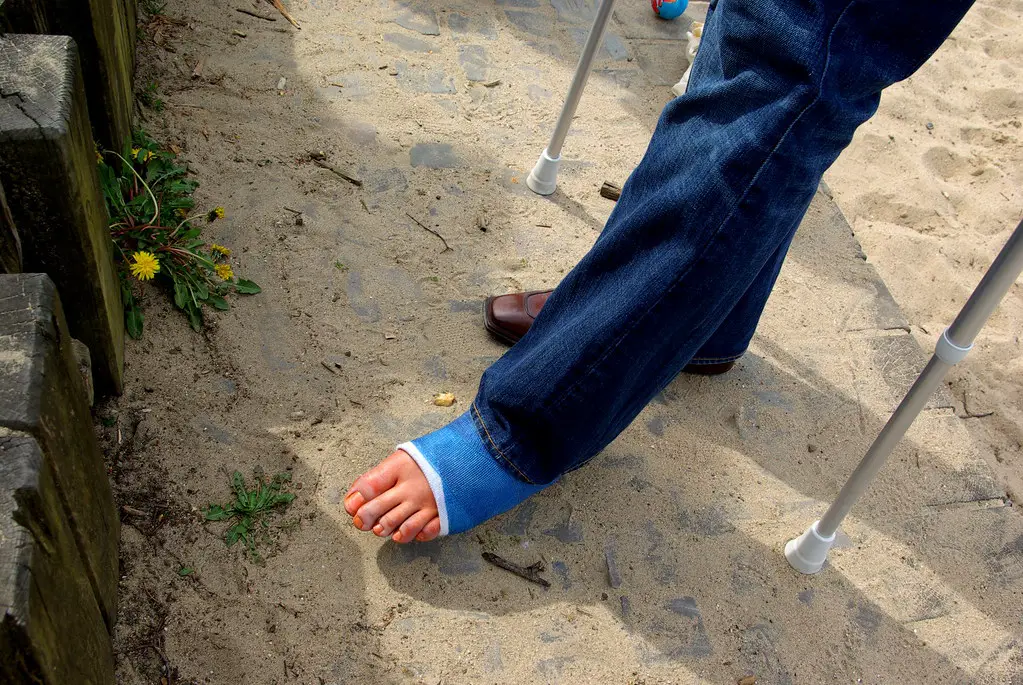
Okay, maybe not sweet, but your bones do start communicating in their own way—by becoming more fragile. Osteoporosis becomes a real concern after 50, especially for women post-menopause. Bones lose density, making fractures more likely even from minor falls.
To keep your bones strong, incorporate weight-bearing exercises into your routine, ensure adequate calcium and vitamin D intake, and avoid smoking and excessive alcohol. Regular bone density tests can also help monitor your bone health. What’s extra tricky? Bone loss is often silent until something breaks—literally. According to the National Institute on Aging, nearly half of all women and a quarter of men over 50 will break a bone due to osteoporosis. So yes, hitting the gym and reaching for that Greek yogurt is more important now than ever.
4. Your Hair Decides to Go Rogue
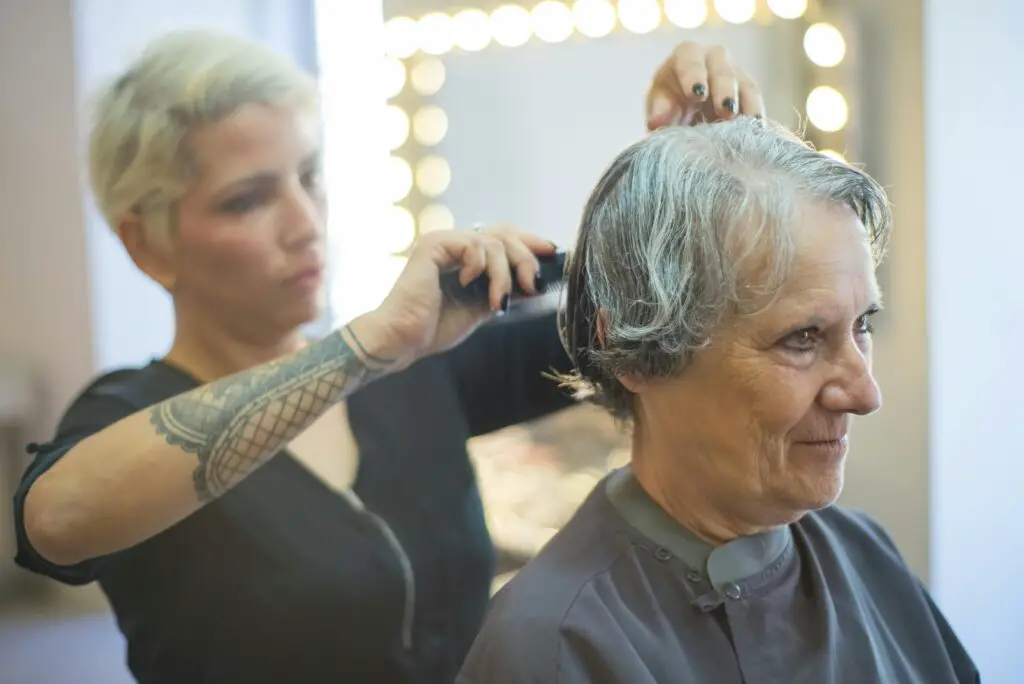
Noticed your hair thinning or graying in places you didn’t expect? Hair changes are common after 50. While graying is a natural part of aging, hair thinning can be influenced by hormonal changes, especially in women during and after menopause.
Maintaining a healthy diet rich in essential nutrients, managing stress, and using gentle hair care products can help. If hair loss is significant, consult a dermatologist to explore potential treatments or underlying causes. Plus, don’t forget that changes in thyroid function—super common after 50—can also wreak havoc on your hairline. According to Mayo Clinic, androgenetic alopecia (a fancy name for age-related hair loss) affects up to 50% of people by their 50s. So if your hairbrush looks like it just fought a cat, you’re not alone—just aging like the rest of us.
5. Your Sleep Patterns Play Hide and Seek
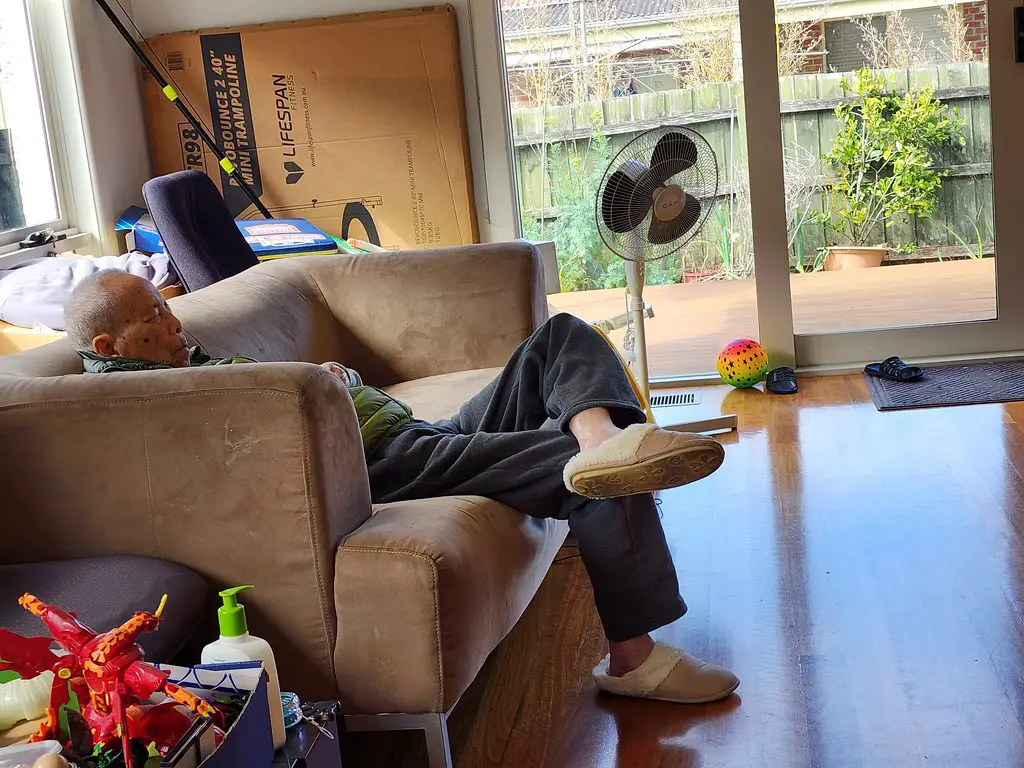
Remember those days when you could sleep through anything? Post-50, sleep can become elusive. Changes in sleep architecture mean lighter sleep and more frequent awakenings. Factors like decreased melatonin production and health conditions can further disrupt sleep. Medline Plus points out that older adults get less deep sleep and more early-morning wakeups, which can leave you feeling groggy by lunch.
Establishing a consistent sleep routine, limiting caffeine and screen time before bed, and creating a comfortable sleep environment can improve sleep quality. If sleep disturbances persist, it’s essential to consult a healthcare provider to address potential sleep disorders. Sleep apnea, restless leg syndrome, and nocturia (nighttime bathroom breaks) are all more common after 50 and can secretly sabotage your shut-eye. Bottom line? Sleep hygiene isn’t optional anymore—it’s your new bedtime mantra.
6. You Start Shrinking (Yes, Really)

If your pants suddenly seem longer and the top shelf feels more top-shelfy, you’re not imagining things—you’re actually shrinking. After age 50, most people lose about half an inch every decade, and it’s not just bad posture to blame. The discs in your spine start to dry out and compress, basically turning your back into a collapsing Jenga tower.
This gradual vertical betrayal also comes from muscle loss and thinning cartilage in your joints. For women, menopause accelerates the process, thanks to the drop in estrogen. Men aren’t off the hook either—testosterone takes a dip and joins the party. While you can’t stop the shrink, you can slow it with weight training and good posture habits. Stretching, Pilates, and yoga all help preserve that precious height. But let’s be real: sometimes you just gotta own the short queen or king energy. Invest in a stool and accept the vertical plot twist with grace.
7. Your Sense of Taste Goes on a Vibe Shift

You might notice that your favorite spicy curry suddenly tastes like bland oatmeal—or worse, that chocolate doesn’t slap the way it used to. That’s because your taste buds start to atrophy after 50, and your sense of smell (which helps out a lot more than we give it credit for) also starts dialing it down. It’s like your tongue hit midlife crisis and decided to ghost salt.
This change can affect your appetite and even your nutrition if food just doesn’t seem appealing anymore. Some people crave more intense flavors to compensate, while others lose interest in eating altogether. You might start dumping hot sauce on everything, chasing that elusive flavor high. Bitter and sweet flavors tend to dull the fastest, so your favorite coffee or dessert might start tasting off. To make it worse, certain medications common after 50 can make food taste metallic or weird. Staying hydrated and experimenting with herbs and spices can help perk up your plate. But if you find yourself mourning a favorite food, pour one out (preferably something bold and garlicky) for your fallen taste buds.
8. Your Bladder Gets Dramatic

Suddenly you’re mapping out bathrooms like it’s a road trip scavenger hunt? Welcome to the over-50 bladder experience. Your bladder becomes less stretchy and more irritable, meaning it wants to go more often—and it’s not subtle about it.
Urge incontinence becomes more common, where your bladder goes “surprise!” and you’re sprinting for the restroom. For women, this can be related to pelvic floor weakening post-menopause. For men, an enlarging prostate can block the flow and make everything harder to control. Nighttime bathroom trips (a.k.a. nocturia) also crash the party, messing with your sleep. And the kicker? Even when you just went, your bladder might send a follow-up email five minutes later. Kegels aren’t just for birthing class anymore—they can actually help. Hydration still matters, but timing and caffeine moderation are your new bladder besties.
9. Your Toenails Start Going Full Goblin Mode
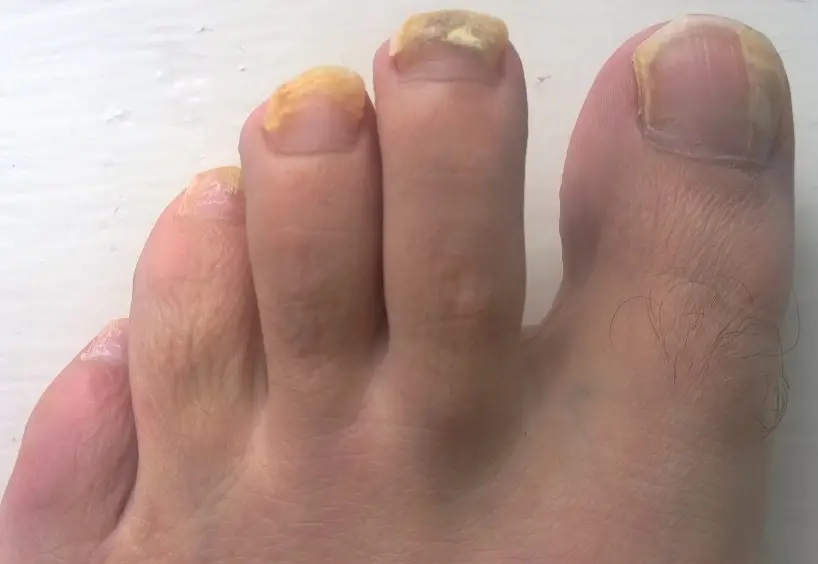
Look down. What… what are those? After 50, toenails often thicken, discolor, or grow slower—but we’re not talking elegant aging here. We’re talking full-blown troll talons.
This delightful transformation happens because nail growth slows and the nail matrix changes texture. Circulation to your extremities also decreases with age, which impacts nail health. Toss in decades of tight shoes, fungus exposure, and stubbed toes, and you’ve got the perfect storm. Thick nails can become hard to clip, easier to crack, and even painful if left untreated. Proper foot hygiene becomes crucial—yes, that means regular pedicures or foot soaks at home. A podiatrist can help if things get out of control, and trust me, it’s worth it. Because nobody wants to be the one with orthopedic Crocs and velociraptor feet.
10. You Start Growing Hair Where You Definitely Didn’t Order It
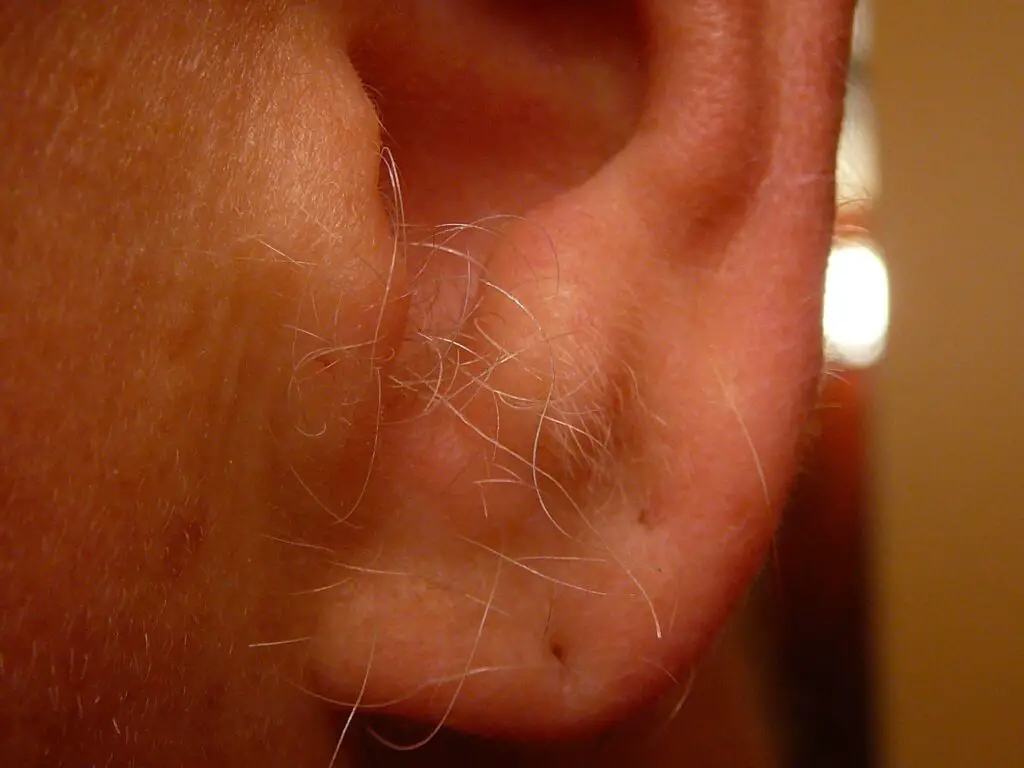
Welcome to the weird, hairy buffet that is aging. Chin hairs? Check. Ears suddenly sprouting like chia pets? Check. Nostril fuzz thick enough to tickle your upper lip? Triple check.
After 50, your body’s hair distribution changes thanks to shifting hormone levels. For women, less estrogen means testosterone gets to run amok, sprouting hairs in new territories. For men, hair migrates south—off the scalp and onto shoulders, ears, and even backs. It’s like your body forgets the original blueprint and starts improvising. Tweezers, waxing kits, and trimmers become loyal bathroom allies. Some folks just roll with it and embrace the fuzz—others go full spa warfare. There’s no shame either way, but just know: that one rogue hair will return stronger if you pluck it with spite.
11. Your Voice Changes, and Not in a Sexy Jazz Way

If your voice has started sounding raspier, thinner, or just… different, you’re not imagining it. Vocal cords age too, becoming less elastic and more dry—like the rest of your body, really. This condition even has a name: presbyphonia (aka “old voice,” which sounds slightly rude but okay).
Men’s voices often get higher, while women’s may deepen a bit post-menopause. It’s kind of like your larynx is going through a reverse puberty, complete with awkward cracking and unpredictable range. Your vocal stamina might also dip, so talking for long periods can become exhausting. If you sing or speak a lot for work, this can be especially frustrating. Hydration and vocal warmups can help keep things limber. But sometimes, it just means learning to project differently. So if you find yourself suddenly sounding like a haunted voicemail, just know it’s totally normal—and maybe a little charming.
12. Your Balance Starts Going on Strike

Once upon a time, you could hop onto a curb in heels or sprint up stairs without thinking. After 50, your balance quietly starts taking vacation days. The inner ear (your vestibular system), muscles, joints, and eyes all work together to keep you upright—and they all start slacking off just a bit.
You might notice more stumbling, swaying, or that fun moment where you trip over nothing. This is why falls become a serious concern after a certain age, even for active folks. Muscle mass and reflexes decline too, so your ability to catch yourself isn’t what it used to be. But it’s not hopeless! Balance can be trained with specific exercises, and strength training goes a long way. Bonus: yoga helps with both balance and mental calm, so it’s a two-for-one deal. Just maybe skip the tree pose until you’ve got a wall nearby.
13. You Might Suddenly React to Foods You’ve Eaten Forever

So you’ve been a cheese addict since childhood, but now suddenly a slice of brie sends you running for the Tums? Welcome to the over-50 gastrointestinal remix. As you age, your digestion slows down, your enzyme levels shift, and your gut bacteria throw occasional temper tantrums.
Lactose intolerance, reflux, and bloating become more common—even if you never had issues before. The sphincter at the top of your stomach (yes, you have one there too) can weaken, making acid reflux more likely. Fiber becomes more essential than ever, but you also have to ease into it unless you enjoy bloating up like a parade balloon. Keeping a food diary can help track new sensitivities. And probiotics aren’t just a trendy wellness buzzword—they’re actually useful now. Basically, your gut starts acting like a diva and demands more attention. But with a little TLC, you can still enjoy your favorite foods… just maybe not all at once.
